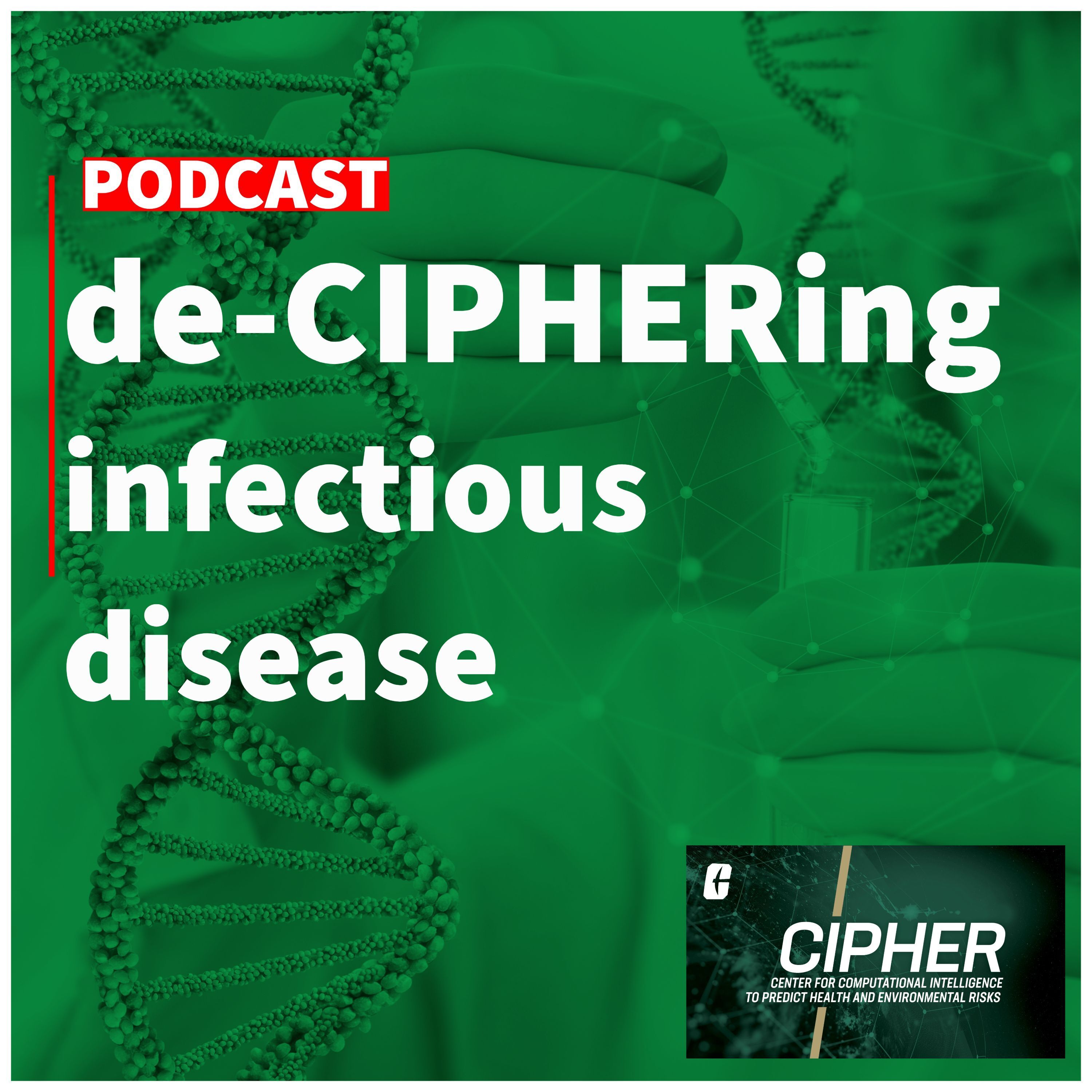
675
Downloads
12
Episodes
”de-CIPHERing Infectious Disease” explores the cutting-edge interdisciplinary research happening at UNC Charlotte’s CIPHER Research Center. Each episode features an in-depth interview with one of CIPHER’s researchers, allowing them to discuss their background, current projects, and the exciting team science approach they take to tackle complex issues at the intersection of health, environment, data science, genomics, infectious disease, and more. Host Ian Binns engages the researchers in accessible conversations that dive into the science behind their work while also highlighting the collaborative spirit and diverse expertise that makes CIPHER’s ”One Health” philosophy so powerful. From evolution and phylogenetics to machine learning, drug discovery, and preventing the next pandemic, ”de-CIPHERing Infectious Disease” offers listeners a window into the innovative solutions being pioneered to address global challenges.
Episodes
Tuesday May 07, 2024
Bioinformatics with Dr. Dan Janies
Tuesday May 07, 2024
Tuesday May 07, 2024
Episode 2
In this episode, we are joined by co-director of CIPHER and bioinformatics expert: Dr. Dan Janies. He discusses his background and work in using computational methods and genomic data to study infectious diseases. He explains how he traced the origins of the SARS coronavirus to bats and used bioinformatics to track the spread of diseases like SARS, bird flu, and COVID-19 variants. Dr. Janies describes innovating techniques like projecting phylogenetic trees onto Google Earth to visualize disease movement and calculating protein structures to predict immune evasion. He shares his vision for "functional molecular epidemiology" to not just detect mutations but understand their impacts, and emphasizes the need for constant genomic surveillance to stop outbreaks before they become pandemics. This work is truly interdisciplinary and cutting edge.
Find out more at cipher.charlotte.edu.
Key Takeaways
- Bioinformatics is a field that combines computer science and biology to analyze and compare genomes.
- Comparing genomes of viruses and bacteria helps understand their evolution and the impact of mutations.
- Tracing the origins of infectious diseases can provide insights into their transmission and help prevent future outbreaks. Supramap is a tool developed by Dan Janies that projects virus trees onto Google Earth, allowing researchers to study the movement and evolution of viruses.
- Functional molecular epidemiology focuses on understanding the impact of mutations in viruses and their implications for public health.
- Artificial intelligence, particularly the AlphaFold program, has revolutionized structural biology and the ability to accurately and quickly calculate protein structures.
- There is a need for a proactive approach to monitoring and preventing pandemics, using genomics and computational tools to detect and respond to emerging infectious diseases.
- Collaboration and capacity building are essential in the field of bioinformatics and infectious disease research, as researchers work together to develop best practices and share knowledge.
This podcast was produced and edited by Zack Jackson
CIPHER is a proud part of UNC Charlotte who holds all rights to the content created by this podcast

No comments yet. Be the first to say something!